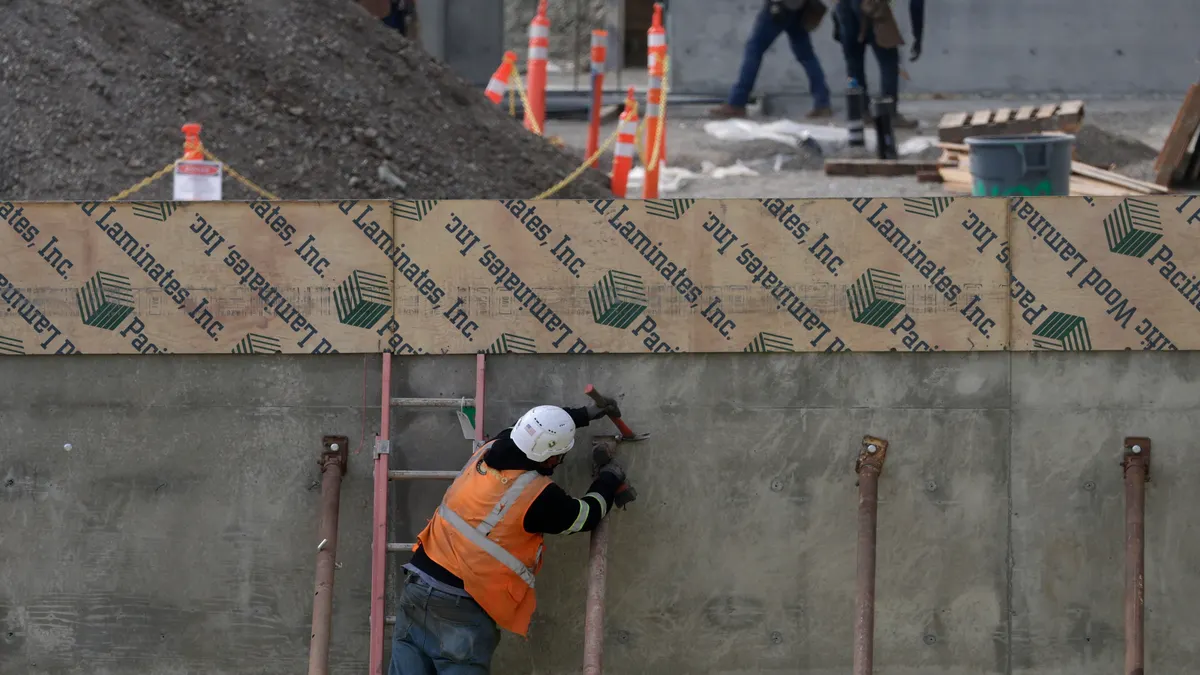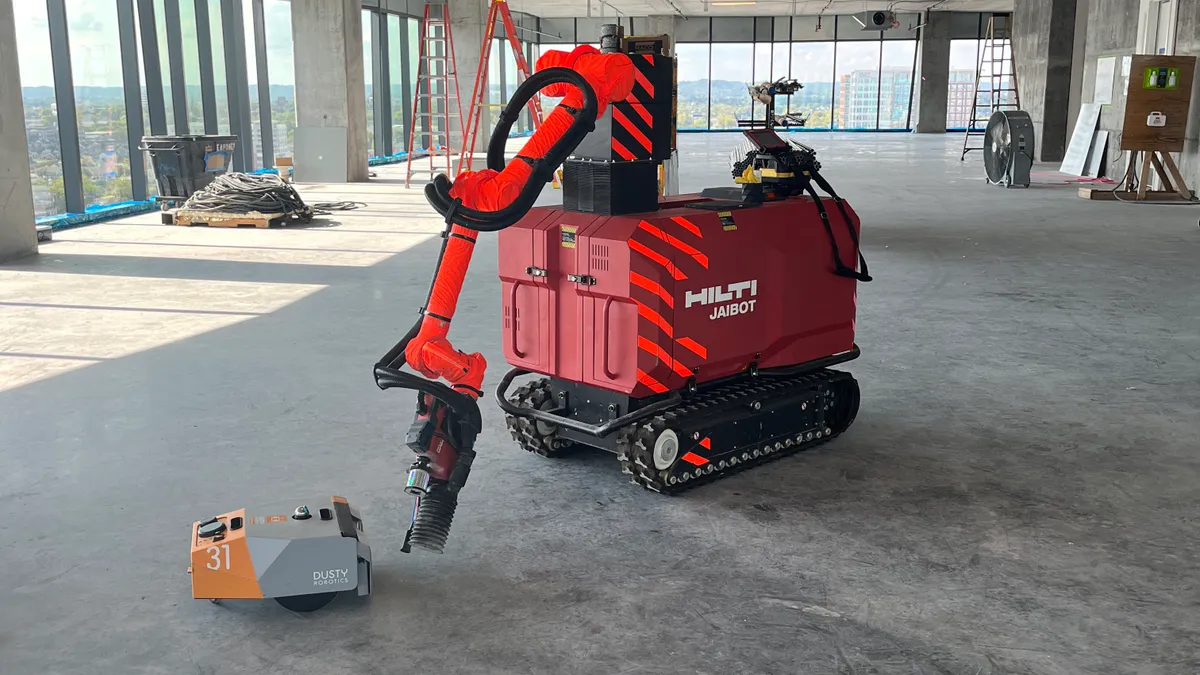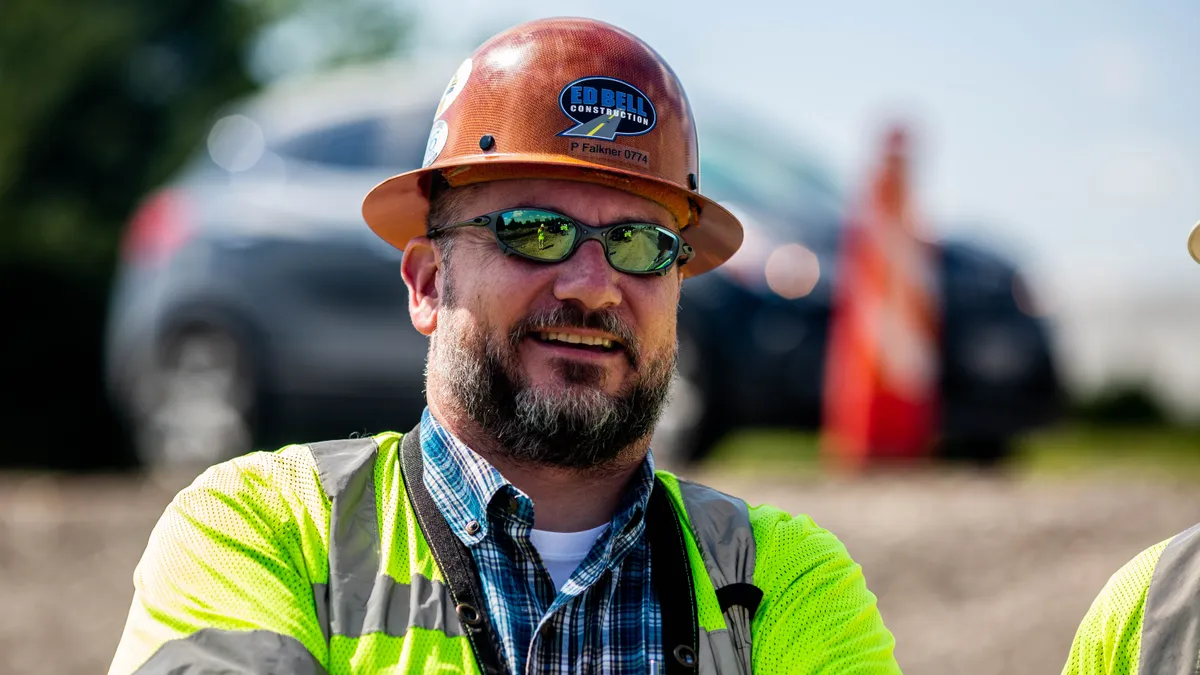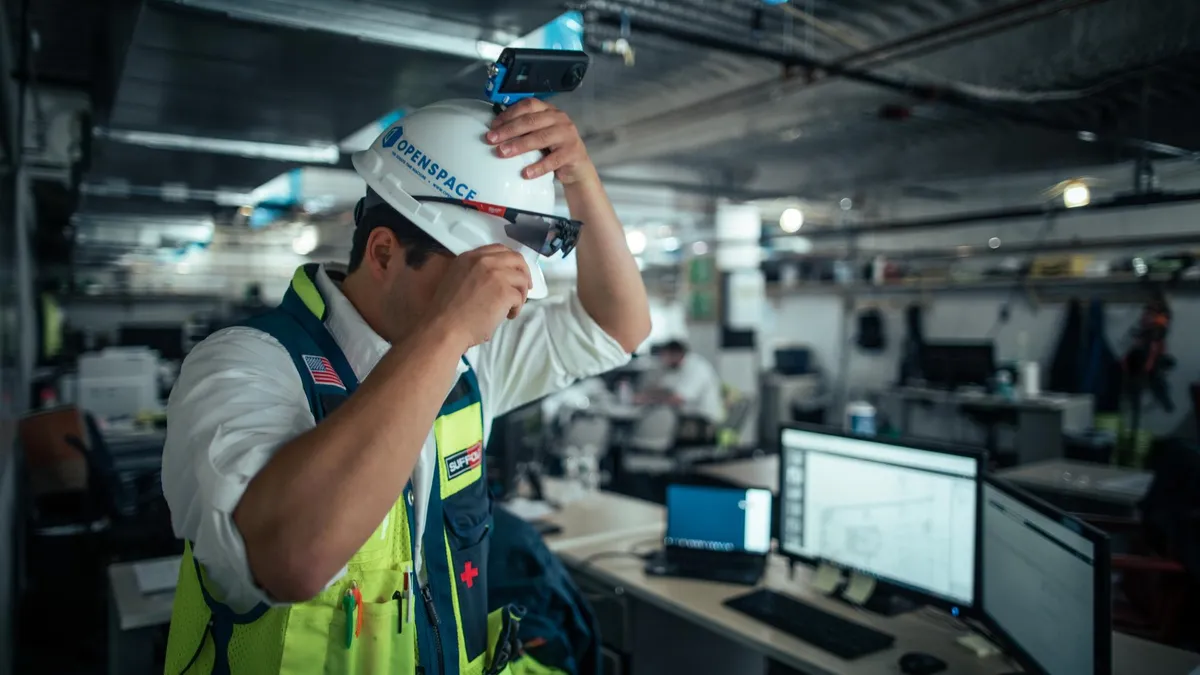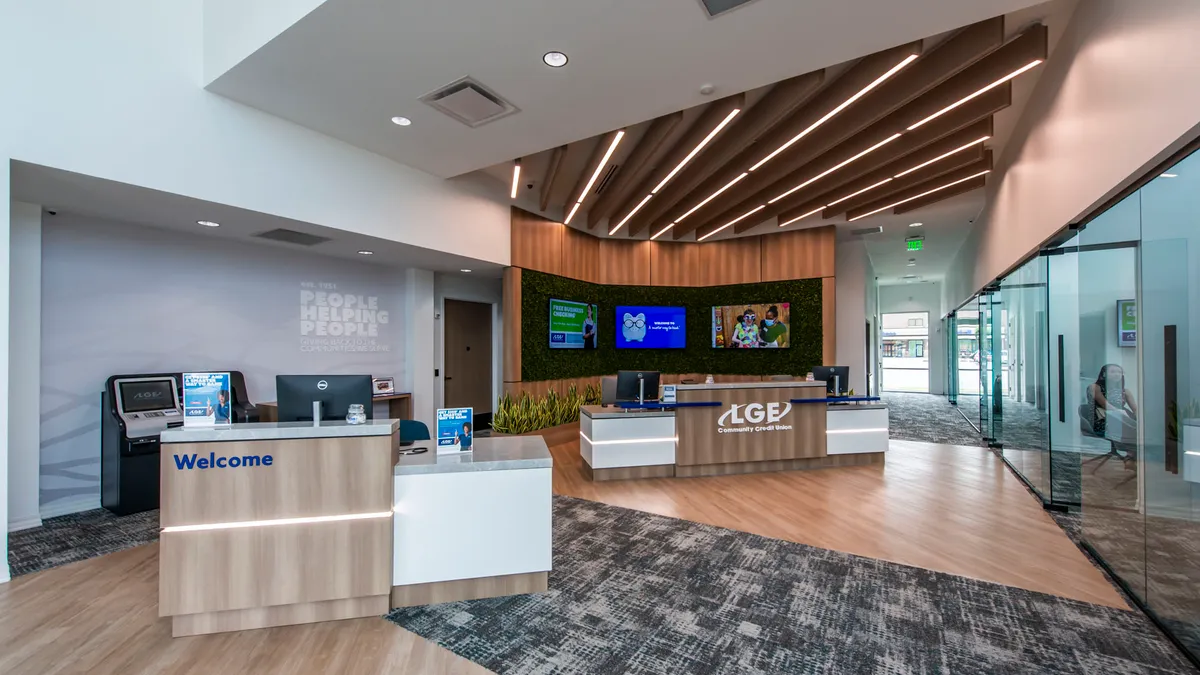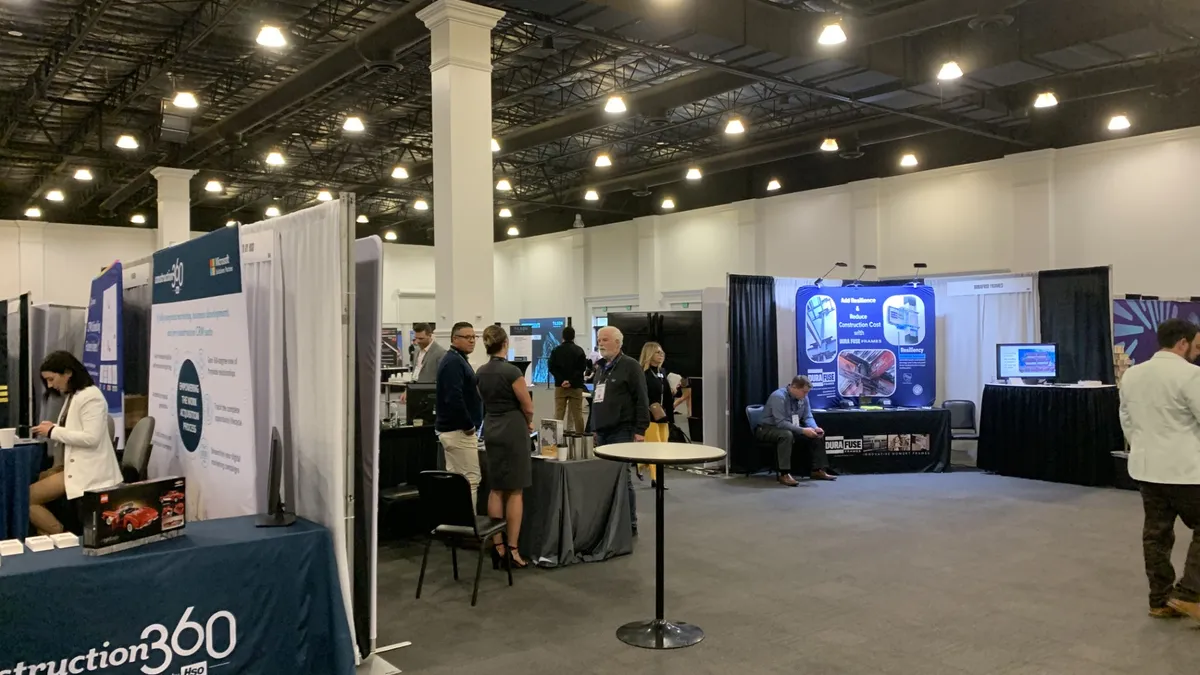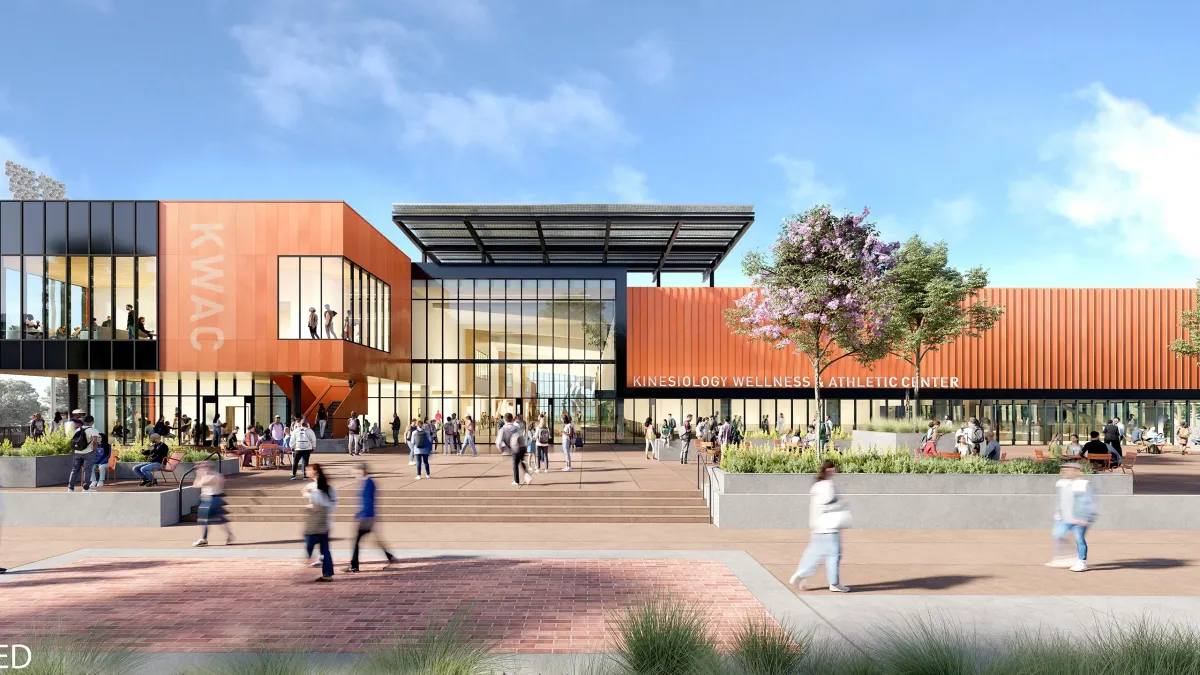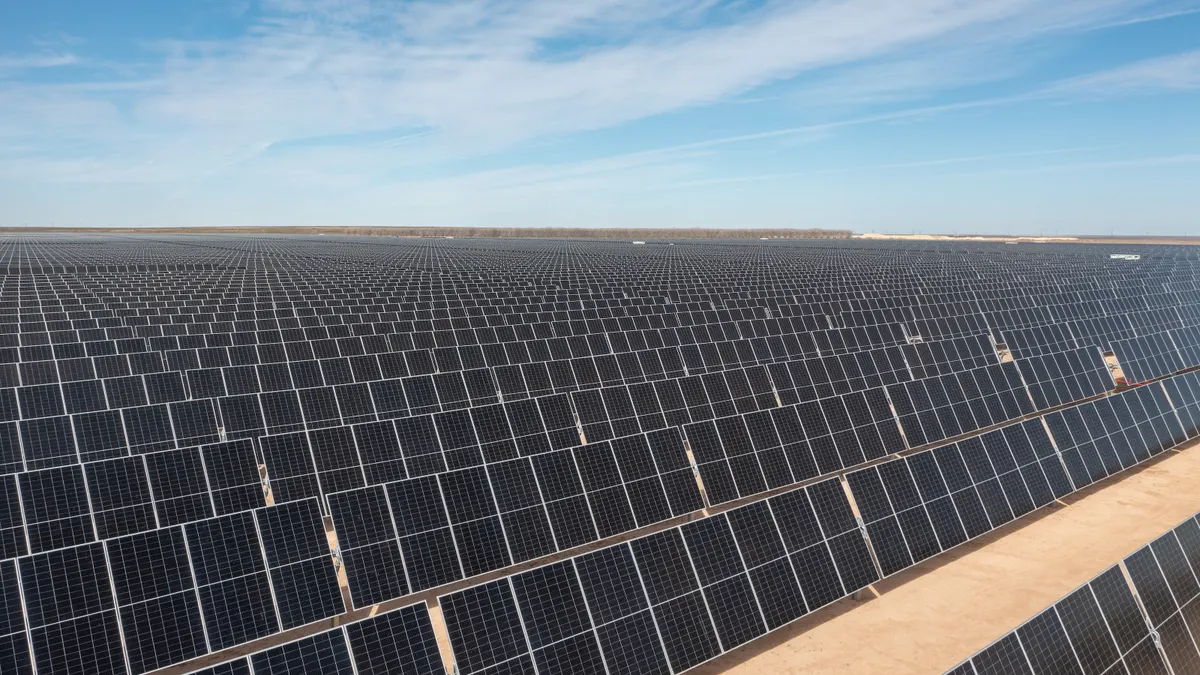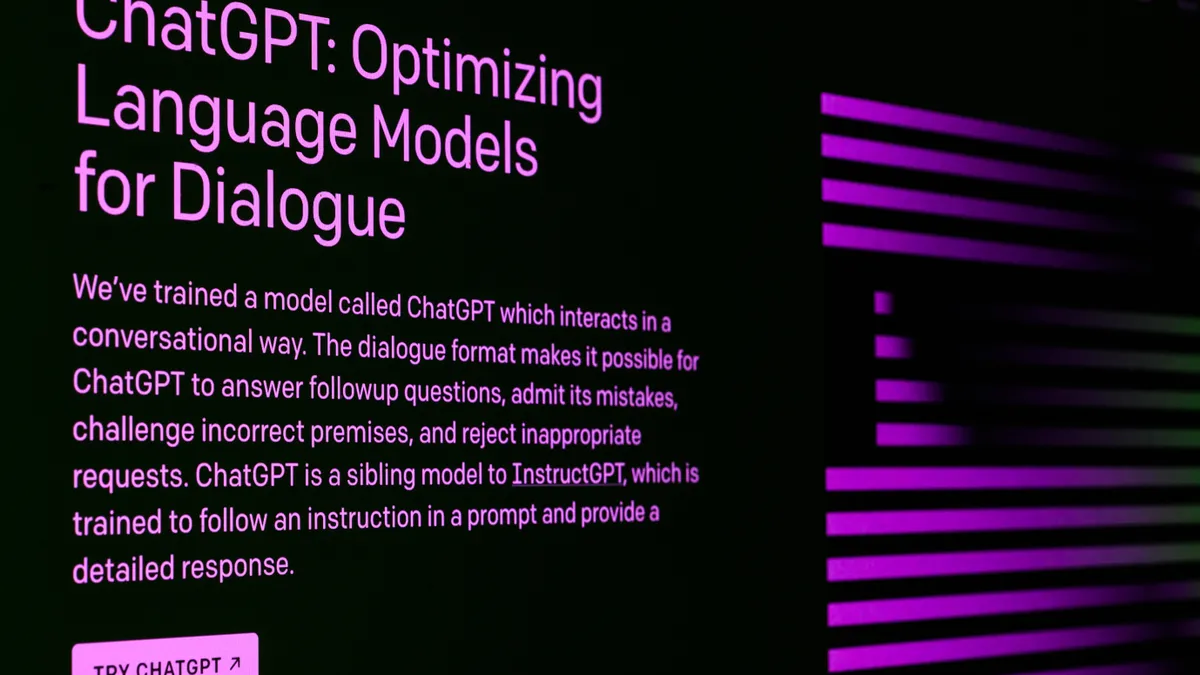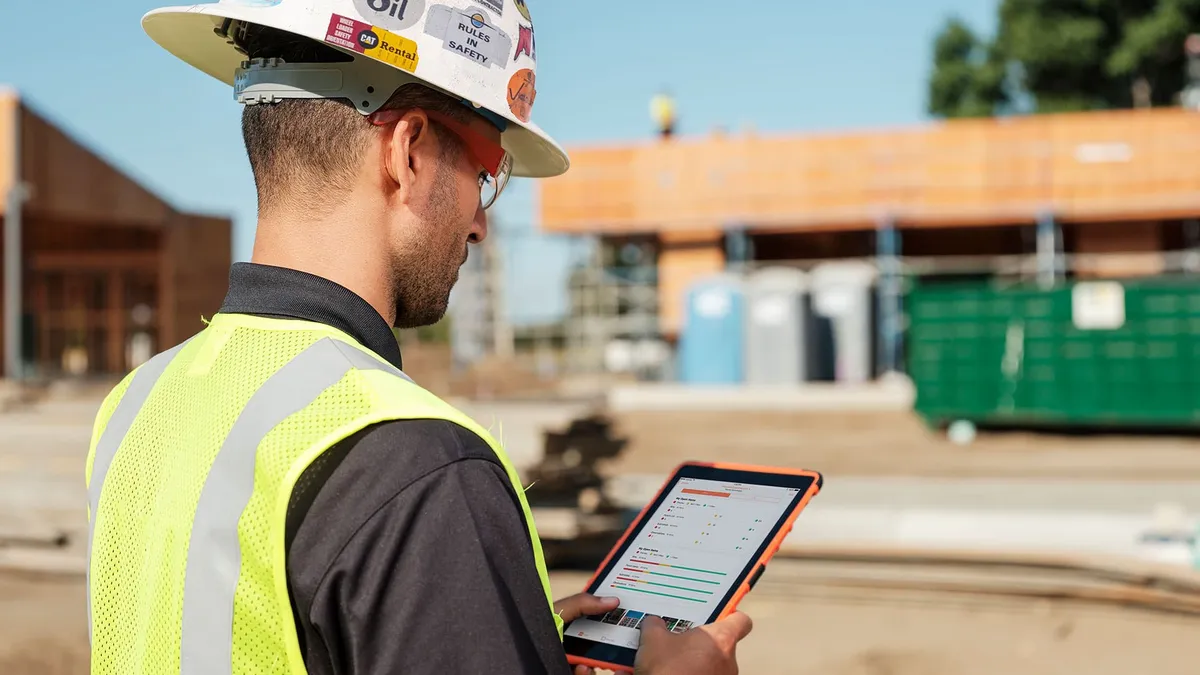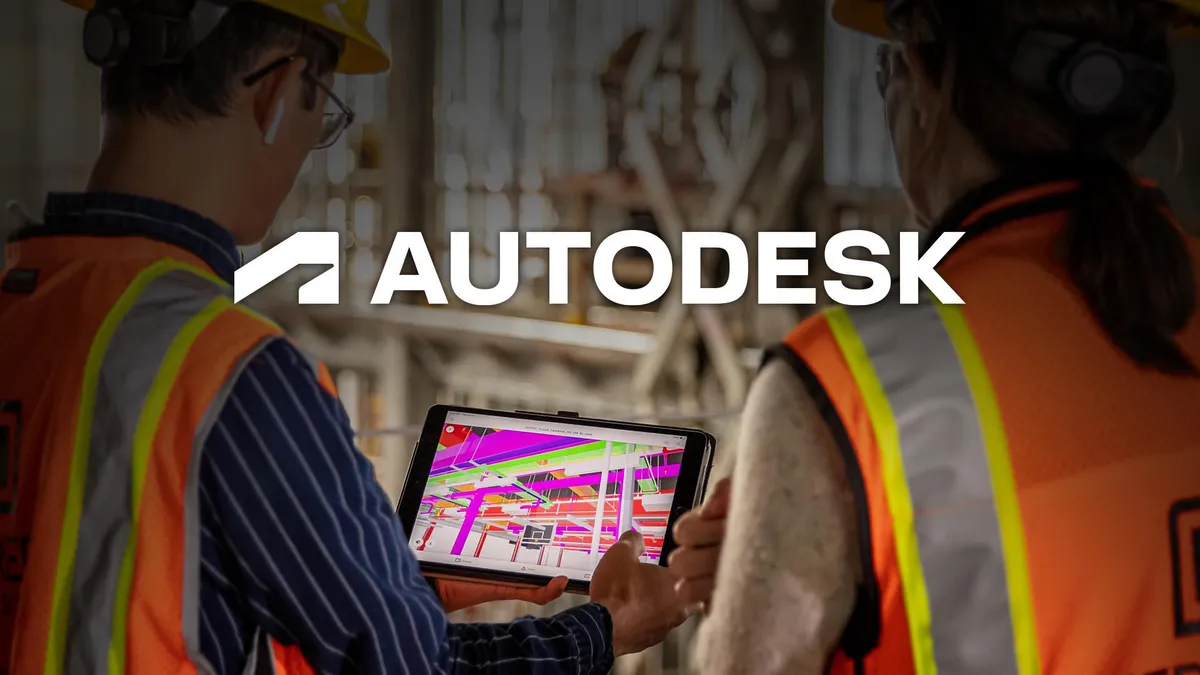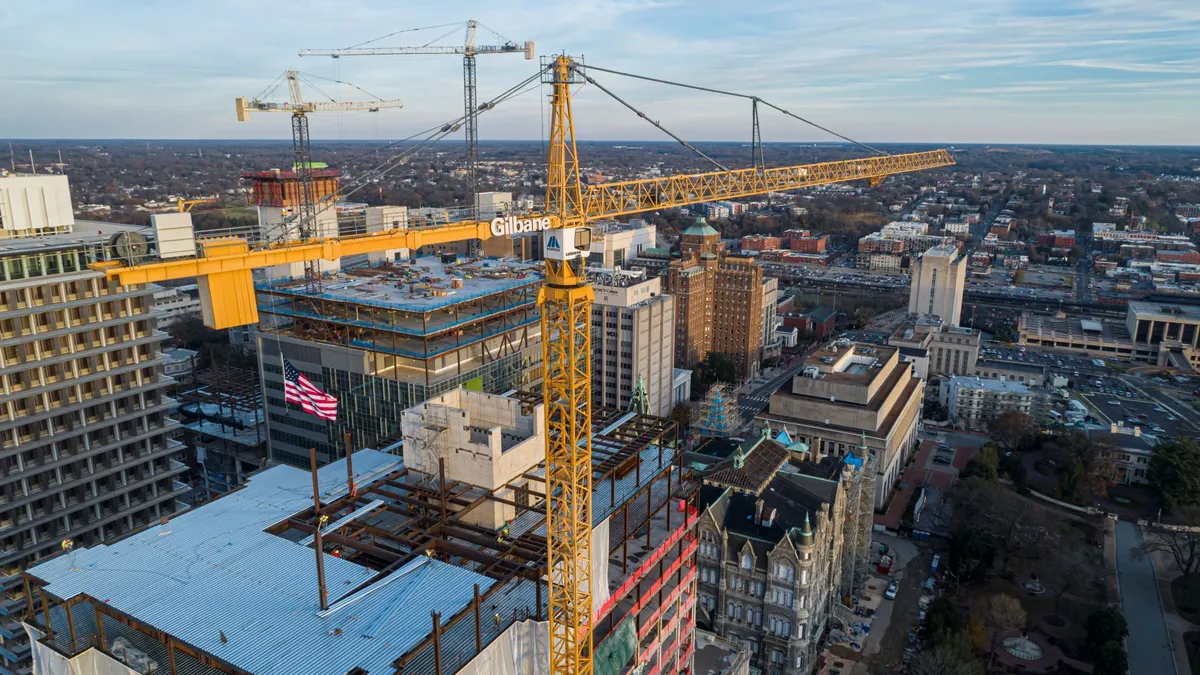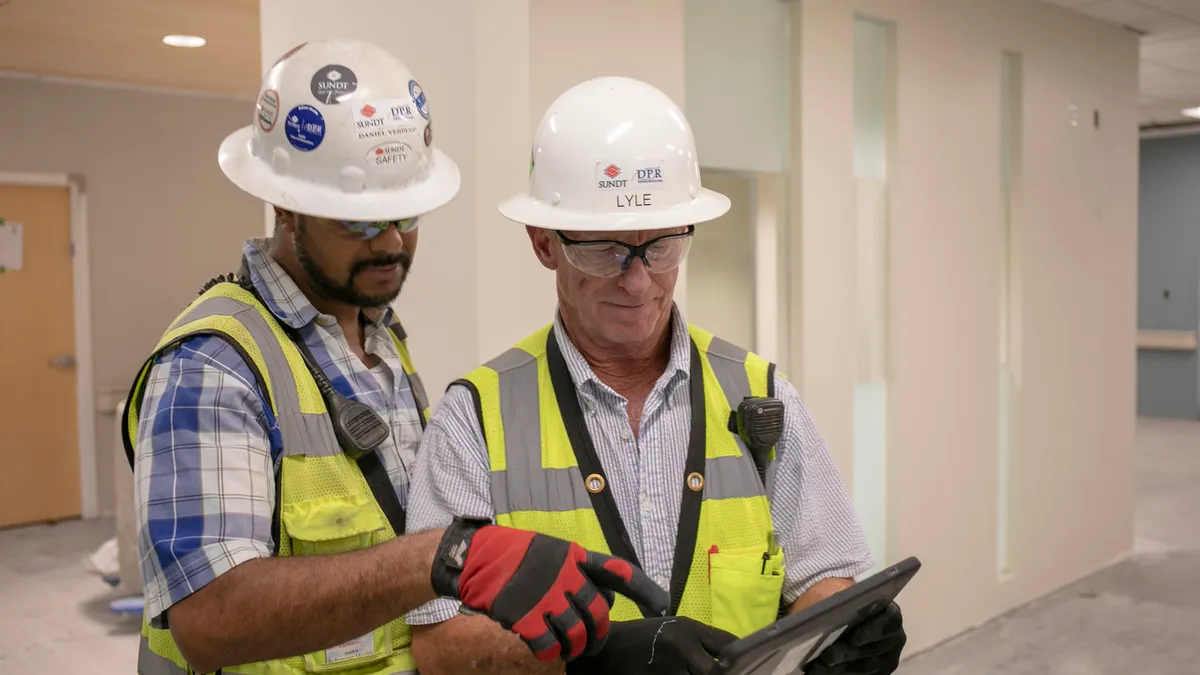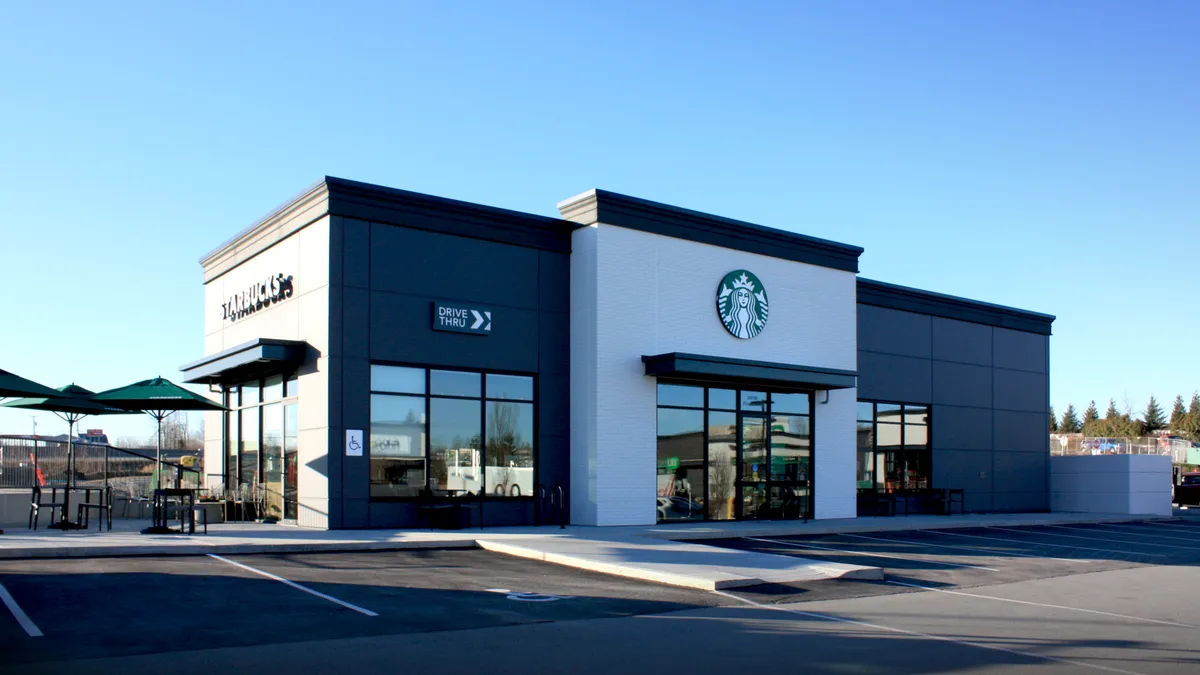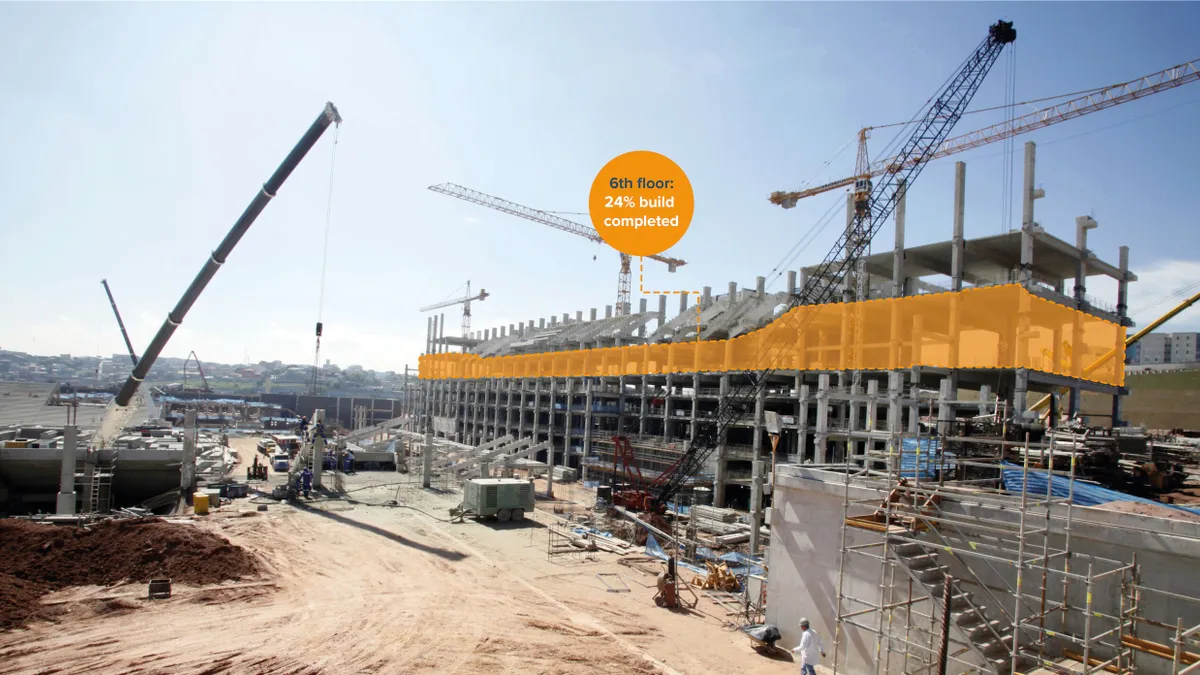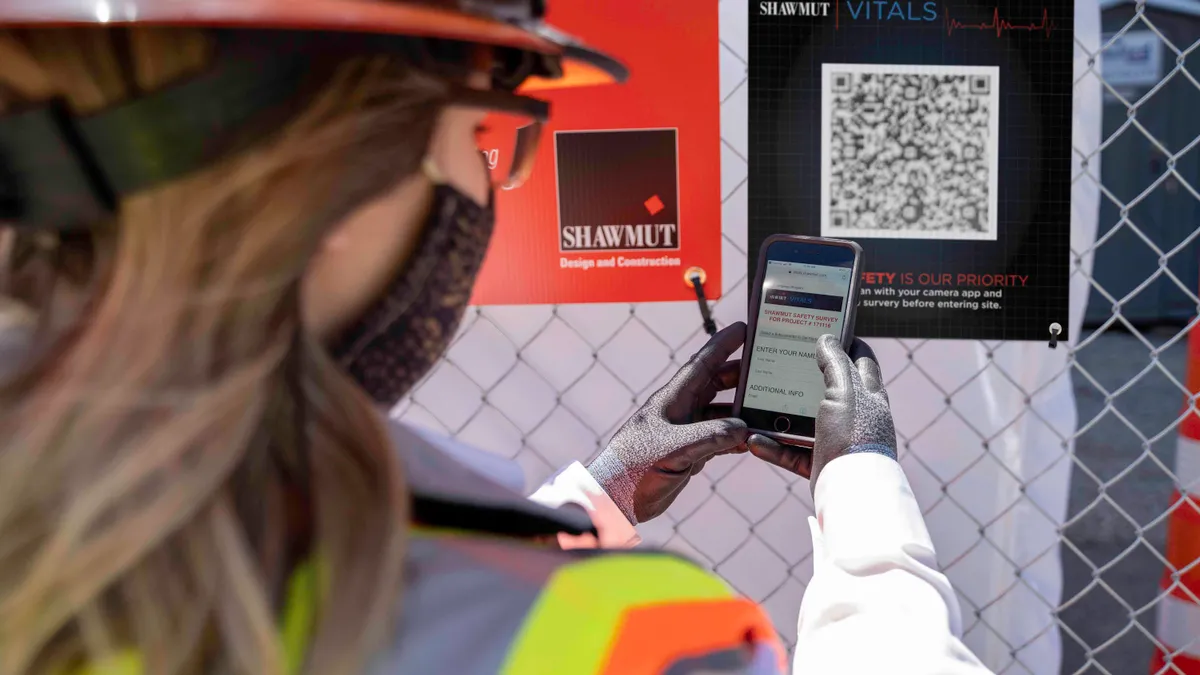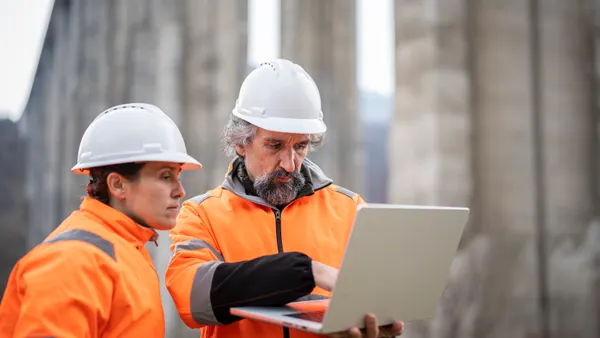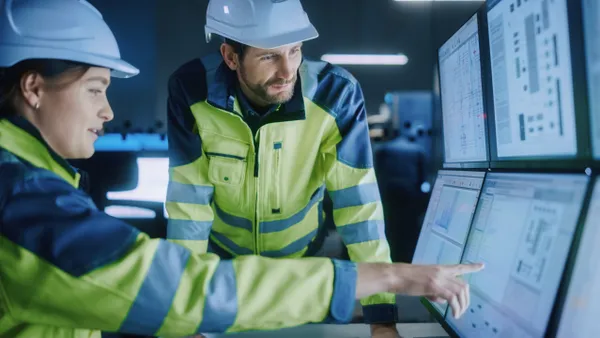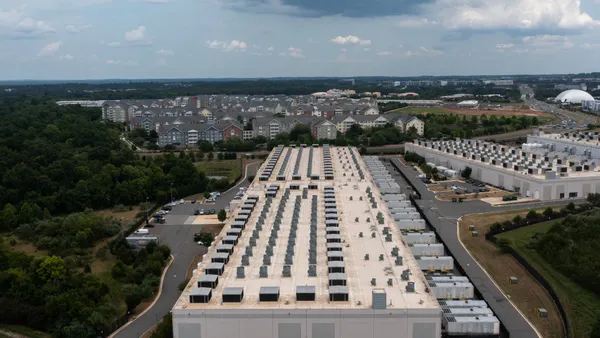ConTech Conversations presents monthly discussions with construction pros who are using technology to improve the way their companies do business. Click here for past conversations.
Jit Kee Chin has her eye on a revamped tech stack in the coming year.
Chin, the chief technology officer for Boston-based Suffolk Construction, has said previously that it’s OK to be a fast follower when it comes to tech implementation. Now, she’s been tracking which construction technology sectors are getting hot, and why one in particular fell to the wayside.
Here, Chin talks with Construction Dive about artificial intelligence, robotics, what Suffolk is looking at in its tech stack and her predictions for 2025.
Editor’s Note: This interview has been edited for brevity and clarity.
CONSTRUCTION DIVE: What are you currently seeing in the contech space?
JIT KEE CHIN: AI continues to grow. If last year was more about a lot more general AIs and co-pilots, I think this year we're seeing more variety, and certainly some of the younger companies are getting to scale. They're not to scale yet, but they're more than a piece of paper and an idea.
We're starting to see that wave of AI startups really hit, and probably getting to where the rubber hits the road.
We've looked at AI a lot. We are adopting, at scale in the company, AI solutions that simplify the interaction of project teams with their information.
We're piloting solutions that allow you to search and retrieve, that allow you to query information in a fairly major way.
There is always more to learn about AI.
What are some technologies that you want to learn more about?
I think robotics is actually quite interesting. I think now we're into the phase of, “Hey, is it really going to adopt and scale?” and you're seeing some use cases getting traction. A lot are stuck in the pilot phase, and not necessarily moving beyond that.

I just read a piece looking in depth at robotics, because I was kind of curious to see, are construction robots here or not? But to what extent is it becoming really prevalent? I think the jury is still out.
A second trend that we saw is an interesting focus on materials.
We have always watched materials. I won't say we're experts, but the focus on embodied carbon, and the fact that embodied carbon is a major contributor to global greenhouse gas emissions, that historically has received very little focus, I think that is changing.
We have been watching the low-carbon material space for a couple of years now, and we are starting to see much more activity there.
If you pick another category, like sensors and Internet of Things devices, I feel like the hype has fallen from the IoT devices now. There was a time when they were super hot.
Why do you think the hype over IoT devices died?
I think the infrastructure requirements on IoT in general, the need for broadband or some kind of network, mesh network, has always been a bit tough for construction, because that means you need to build that infrastructure up front.
The second set of problems is what the sensor is tied to. If you’re talking worker sensors, which people tried to measure, they tried predominantly to measure productivity. A lot of people claim it was for safety reasons. There was just big adoption resistance for a sensor on workers themselves, especially in the union environment.
So none of those really took off.
Sensors that are meant to monitor the environment, those, in some cases, were successful. Things that monitor the environment for particulate matter or temperature or heat and whatnot. I think they still get used, but not systematically, because in a lot of construction, you may not need it.
It's the value-to-cost calculation that folks have.
Are there any non-jobsite-specific apps that Suffolk is trying?
Clearstory, formerly called Extracker, which does timekeeping. Construction constantly struggles with timekeeping and submitting the time slips and getting paid.
What we're really excited about, and this one is still earlier in the funnel, is procurement. One of our BOOST tech accelerator companies, Kaya, we are actively working with now, because they have an AI-enabled way to get you an automated procurement and delivery log.
We all know a lot of schedule delays come from procurement delays, and it's just a lot to keep calling up the sub and figuring out, “Hey, when is this material going to come?” Then you have some manual delivery log that you have to tie to your submittals and tie to your schedule. That is a workflow that is ripe to be streamlined.
And more in the management aspect, finding better ways to staff. This is a mature trend, so I wouldn't say that it's super early in the funnel, but solutions that help with staffing and workforce management in general, for the construction industry, I think are gaining more and more traction.







